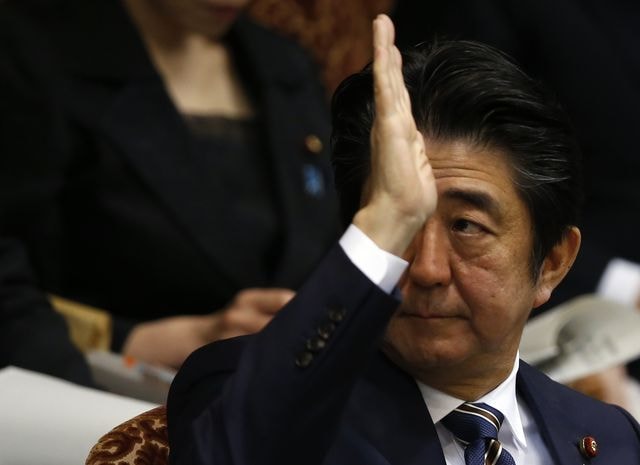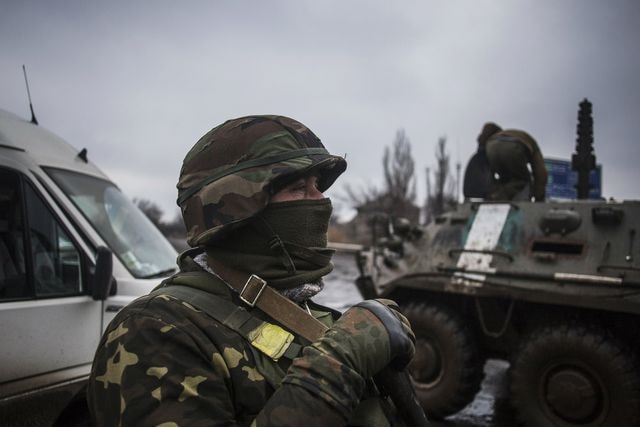World last week: Where is it on the world political map?
(Baonghean) - Besides geographical location, there is an invisible but extremely important position to position a country on the world map. Choosing allies, gathering into organizations, associations, groups - that is how countries express their policies, orientations and goals. If the geographical location is almost unchanged (or if it is, it is only a shift in borders and names), the political position can completely change poles quickly. Left, right or neutral, that is the question always posed to each country before the constant movement of power flows in the world.
Japan at the crossroads of IS in the Middle East
The IS execution of two Japanese hostages has directly affected the international political chessboard, with the focus being on the Middle East. Fighting in the Middle East has never been a top concern for Japan, or Asian countries in general. But that is now a thing of the past, the land of the rising sun is facing two choices: to join the war on terror or to continue to keep its distance.
 |
| Japanese Prime Minister Shinzo Abe on February 2. |
First, when it comes to the impact of this event on Japan’s domestic political situation, public opinion is sharply polarized. The pro-Abe faction supports the reform of the pacifist Constitution to allow Japan to intervene in foreign affairs. Meanwhile, the opposition believes that “more active contributions to the peace process” will have negative impacts on national security. In the background of this debate, doubts and concerns about Prime Minister Shinzo Abe’s recent decisions have emerged. Specifically, the January 17 announcement of $200 million in humanitarian aid for “countries fighting against IS.”
The Nihon Keizai daily called it a “short-sighted political move” and questioned the wisdom of the decision, given that negotiations to free the hostages have been ongoing since November. Just three days after the aid announcement, IS threatened to execute the hostages and did so. Despite Japan’s careful distance from the Middle East, the truth is that it has close ties to the region. Having shut down its nuclear plants after the 2011 Fukushima disaster, Japan has become extremely dependent on fuel from the Middle East.
This is not the first time Shinzo Abe's political stance has been questioned. Since taking office in 2012, he has made unprecedented diplomatic moves and increased defense spending. The murder of two Japanese hostages has reinforced Japanese fears about the dangers posed by Shinzo Abe's ambitions for power, while also reminding them that Japan is not yet capable of turning such ambitions into reality. Diplomatically, Japan is constrained by the weight of the United States - a country that refuses any form of negotiation or compromise with terrorists. In addition, Japan also lacks experience in handling emergency crisis situations. This event is especially complicated by the involvement of a third party, Jordan.
That is, in terms of domestic politics and foreign policies, Japan will have to choose its specific position in this common war. Since the oil crises of the 1970s, Japan has maintained an extremely clever neutral foreign policy in this region - where Japan has never had colonies - to maintain good relations and ensure a stable energy supply. Japan even maintained relations with Iran after the 1979 revolution despite pressure from the United States. However, when Japan supported the Iraq war and sent "self-defense forces" to participate in the peacekeeping process, this cautious foreign policy began to show cracks. Two Japanese diplomats were executed in 2003, one Japanese hostage was executed and two hostages were captured and freed (for unknown reasons) in 2004. These numbers are not many compared to the number of kidnappings targeting Western hostages, but they are also a warning from Middle Eastern terrorist organizations to the faraway Asian country.
At present, Japan has been officially placed by terrorist groups on the “side” of the West against IS: the West is on the front line of direct combat, while Japan takes on the role of logistical humanitarian and economic aid. Tokyo denies this accusation, affirming that Japan’s purpose is simply to contribute to stabilizing the situation in countries like Egypt or Jordan. But perhaps, the Japanese also understand that any explanation is useless and they can no longer sit in the audience of the war. Cutting off all ties with the Middle East or joining the big war, will Japan choose to preserve itself or accept the risk, pursuing its ambitions of military power?
Arming Kiev: Is the US Ready to Start a Full-Fledged Cold War?
On Friday, February 6, President Barack Obama's adviser Susan Rice presented the US national security strategy report, in which the section on the Ukraine crisis received special attention. A report released on February 2 with a proposal to send "heavy" weapons to Kiev sparked a fierce debate about Washington's intentions towards Moscow.
 |
| Ukrainian servicemen in Donetsk on February 3. |
On Tuesday, February 3, a White House spokesman dismissed this hypothesis - similar to the views of Germany and France: "Military aid would add blood to this battlefield, and that is exactly what we are doing everything we can to avoid." At the same time, Josh Earnest also added that providing aid to the Ukrainian Army so that they can "push back the Russians" is "unrealistic." However, a day later, Ashton Carter - the President's nominee to replace Chuck Hagel as Secretary of Defense - told the House of Representatives that he was "very sympathetic to the proposal" and was supported by John McCain, the Republican chairman of the House Armed Services Committee. During a visit to Kiev on Thursday, February 5, US Secretary of State John Kerry only confirmed that President Obama would "make a final decision quickly."
The proposal to give heavy weapons of mass destruction to Kiev, supported by Republicans and some Democrats in Congress, has caused much controversy among non-governmental political research circles. The report, signed by Strobe Talbott, president of the Brookings Institution, was strongly opposed by Jeremy Shapiro, one of the association's researchers. The former Obama administration official analyzed Washington's concerns about the effectiveness of the tactics used so far, in which sanctions are the top priority weapon, to pressure and force Russia to accept Kiev's freedom to choose its allies. This measure seems to be not as effective as the US and the West expected, and that is why Washington is starting to lose patience.
The problem is that the US cannot completely abandon talks with Russia, which plays an important role in the negotiations on Iran’s nuclear program, and then Syria and Afghanistan. On July 29, 2014, US President Barack Obama seemed to want to limit the conflict between the two sides within the borders of Ukraine when he declared that “There will be no new Cold War”. However, six months later, the separatists continue to fight with Russian support and the US-Russia relationship is on the brink of collapse if the US decides to deliver heavy weapons to Kiev. This could be a challenge for the relationship that has just been restored for six years, and it is also a question that is dividing European countries.
Thus, the policy of “warming up” the cold relationship between Russia and the US initiated by Hillary Clinton has completely failed after a series of crises: Libya, Syria and now Ukraine. But perhaps, never before have both sides shown such a clear and public attitude of confrontation as now. The difference with the world situation in the Cold War of the last century is the presence of a new “pole” – whose nature is chaos, infinity – a terrorist force ready to confront all powers. Sometimes that is the last ray of hope to “breathe life” into the “dying” Russia-US relationship: a common enemy, a common interest – sometimes that is enough to erase the differences of opinion, even if only temporarily.
Thuc Anh
According to Le monde






